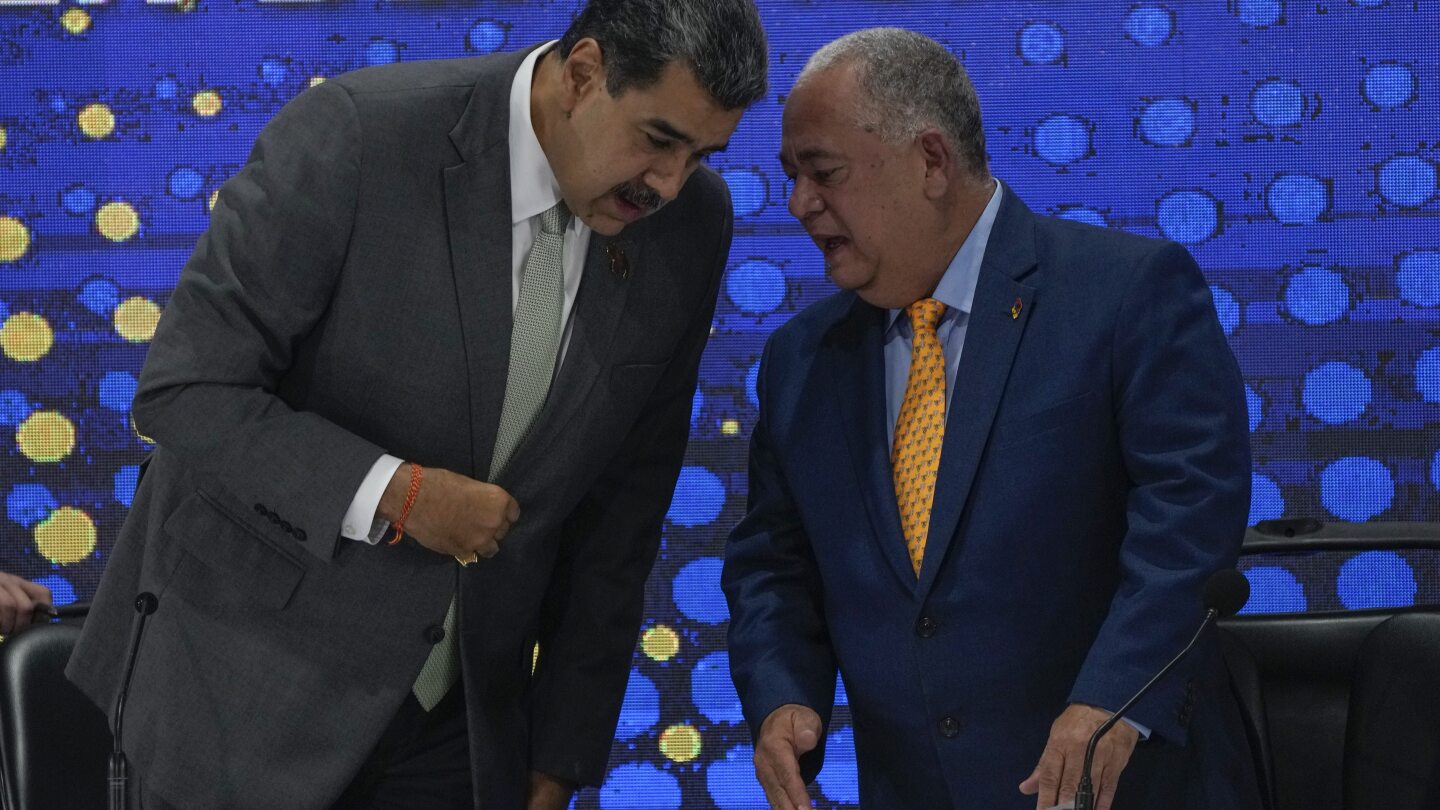- cross-posted to:
- worldnews@lemmy.ml
- cross-posted to:
- worldnews@lemmy.ml
Venezuelan President Nicolás Maduro on Tuesday directed the country’s state-owned companies to “immediately” begin to explore and exploit the oil, gas and mines in Guyana’s Essequibo region, a territory larger than Greece and rich in oil and minerals that Venezuela claims as its own.
The announcement came a day a day after Maduro got the victory he sought in a weekend referendum on whether to claim sovereignty over the region.
Maduro said he would “immediately” proceed “to grant operating licenses for the exploration and exploitation of oil, gas and mines in the entire area of our Essequibo.” He also ordered the creation of local subsidiaries of Venezuelan public companies, including oil giant PDVSA and mining conglomerate Corporación Venezolana de Guayana.



Fascinating, that hadn’t crossed my mind at all. The actual world police could do something probably good (stabilizing at the very least) for the situation.
But that said, I don’t think I would bank on the UN for this one… It seems like Guyana would need continual military presence to dissuade Venezuela because it appears that Venezuela is doing this because Guyana was too fiscally successful over the pandemic. But I mean if the UN does long term guarding like that, then it might be a viable option…
Lemmy.ml is already in full anti-US imperialism mode, saying that the western imposed sanctuary of borders needs to stop and the US puppet state of Guyana has to surrender to Venezuela.
So I wouldn’t trust that the UN can step in, if Russia or China takes this stance as well.
Interesting, I personally wouldn’t actually accuse the UN of being tankie… Maybe capitalist but not tankie… I think if someone makes a convincing argument about the price of oil, it might result in the US or the UN (most likely UN I would wager though) stepping in…
I don’t think the UN will actually do anything though, this is more just me harvesting some hope/cope
I wouldn’t accuse the UN of being tankie, but it does have internal rule structures that it has to abide by, including that Russia has a veto to any UN resolution.
Which is likely why the USA might rely on OAS instead to provide the justification for war and use a coalition of American militaries to push Venezuela out. There is massive self interest in the Americas to keep borders frozen and Guyana is a post-colonial nation, so it isn’t like the Falklands.
The UN should send cruise ships to the region.
https://www.bbc.co.uk/news/world-latin-america-52151951
@FlickOfTheBean the ICJ and the UN have been mixed up in this for a long time and have a binding ruling, so UN intervention is not out of the question imo.
Korean DMZ has entered the chat
Hah! I see the logic, but I think that happened only because the big powers backing each Korea couldn’t push the proxy war to overwhelm each other either way… But then again, I could be wrong, and that could be a viable option here, I really don’t know… The less buried mines on earth, the better, but when you’ve got 1/4 of the population of your enemy, you don’t exactly have the privilege of fighting traditionally either…
You misunderstand.
The UN intervened on the side of South Korea after the Soviets walked out of the Security Council in protest… and failed to account for the fact that the council was not only still in session, and that votes taken in their absence would still be valid, but also that they hadn’t vetoed anything, which you need to do explicitly. So, the UNSC voted to help South Korea defend itself against North Korea (and, eventually, Mainland China, which did not at the time have a permanent seat on the UNSC).
The UN was directly involved in the Korean War, and TONS of countries sent forces in support of the mission (though, admittedly, SK themselves and the US did most of the heavy lifting).